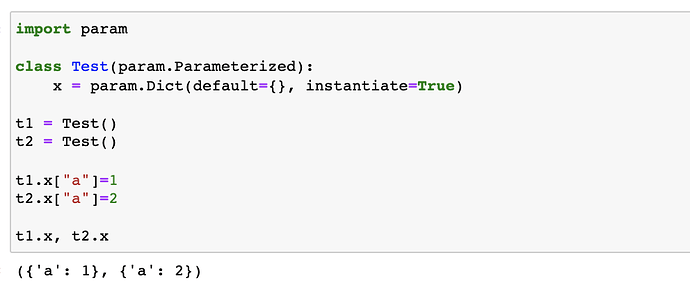import param
import panel as pn
pn.extension()
class Test(param.Parameterized):
x = param.Dict(default={}, instantiate=True)
def __init__(self):
print(self.x)
self.x["key"] = "value"
If I remove default={}, it doesn’t work anymore (I thought instantiate would work alone)
Or is it better to do:
import param
import panel as pn
pn.extension()
class Test(param.Parameterized):
x = param.Dict(instantiate=True)
def __init__(self):
self.x = {}
print(self.x)
self.x["key"] = "value"
The default for a Dict parameter is None, and with instantiate=True you’ll just get a fresh copy of None per instance. It seems like what you’re trying to get is a separate empty dictionary per instance, in which case, yes, supplying default={} seems like the right way to go about that.
To clarify, with default={} and instantiate=True, there’s no issue with unexpected mutations?
e.g. Python’s mutable keyword arguments
def test(x={}):
x["a"] = "b"
should be written like
def test(x=None):
if x is None:
x = {}
x["a"] = "b"
There shouldn’t be, because param does a copy.deepcopy(param_obj.default) when instantiate=True, unlike Python function arguments.
1 Like
